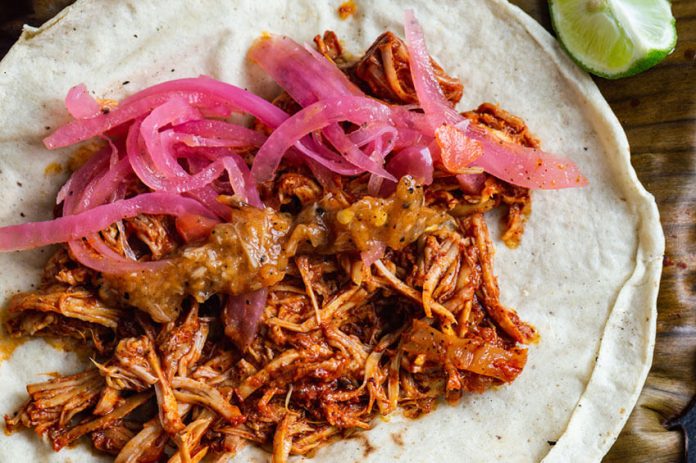A dish at a market in Yucatán left some customers hospitalized with food poisoning on Sunday after more than 30 people became ill.
The cochinita pibil — a regional shredded-pork specialty — at the municipal market in Seyé, 35 kilometers east of Mérida, has been blamed.
People who suffered stomach pains, diarrhea, vomiting, shivers, a racing heart rate or headaches agreed that they had bought the same dish from the same vendor.
Some people who were severely poisoned were taken to Acanceh hospital, while a large number of people required medical attention in Seyé and police officers were required to maintain order outside a clinic.
The market was closed by local authorities and the case is being investigated by the state health ministry.
Cochinita pibil’s popularity is likely to continue: it topped a list of the world’s 100 best dishes in December, in a ranking compiled by the international food website TasteAtlas.
TasteAtlas said the dish’s name is a clue to how it was traditionally prepared. “Since cochinita means ‘baby pig,’ and pibil means ‘buried’ or ‘underground,’ it acts as a proof that the original recipe used a whole suckling pig that was buried in a pit for roasting,” it said on its website.
The pork specialty is made by marinating meat in a combination of annatto paste, bitter orange juice and garlic. It is shredded and served on tortillas, tacos, or on its own with shallots, pickled onions, salsa and various roasted vegetables.
With reports from Por Esto! and El Universal
